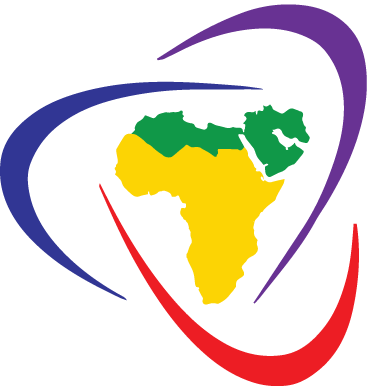By Beatrice Epp for Hope for MENA
Before sitting down with Yusef*, a refugee from South Sudan, my idea of what a refugee goes through went something like this:
- Something bad happens in your country
- You run to the closest country
- You go straight to the United Nations (UN)
- The UN provides you with all you need until they can send you to a new country
- You wait around in slightly uncomfortable tents, but, hey, it’s better than warfare, right?
Yusef opened my eyes to what's happening with the Sudanese refugees (from the Nuba Mountains in South Sudan) when they escape to North Africa.
“When a Nuba refugee first arrives,” Yusef told me, “he calls a family member so they have somewhere to stay. Even if the family doesn’t have room, they take them in, because they know they have nowhere else to turn.
"Sometimes there are 13 people staying in a two-bedroom apartment with no furniture – they just lie on cardboard on the floor to sleep. There is a law here that any building with people living inside cannot be destroyed, so buildings are constructed hastily, without following safety codes, and families move in before the building is even close to being completed. These apartments are in perilous conditions, but it's what refugees can afford, since ‘unauthorised’ buildings charge less rent.”
“When the refugee goes to the UN office, he has to prove when they entered the country, and why they are a refugee. The officer may say 'You have no reason to be a refugee,' and turn them away. My own brother has gone to the UN office every Sunday for 16 years to apply for refugee status, and still has not received it. Members of our family have been raped, murdered, torn up by bombings and shootings – and, apparently, these are not reasons to be refugees.”
The frustration was evident on Yusef’s face as he continued.
“It takes three months to a year to get a UN ‘yellow card,’ (waiting for refugee status). At most, this means the UN may supply some schoolbooks for children. I went to the UN office for medical assistance and they turned me down because my refugee claim was invalid. The same thing happened when I went back to ask for some food – I did not have a real reason for leaving South Sudan. Many of my Sudanese countrymen have been refused basic services by the UN in the same manner.”
“A ‘blue card’ can take three to 15 years to obtain. Once you have it the UN will send you to another country as an official UN refugee. But this card is so hard to get that most don’t bother trying. It is easy enough to find a job here as a cleaner in a house or a company building. Even Sudanese refugee children as young as 12 are working as cleaners, hoping to bring in $50 a month to support their families. Children cannot go to the public schools anyway – they have to pay to go to a UN-recognised Sudanese school.
"I only know of one church here that offers subsidised education for refugees, but they cannot serve the entire refugee community alone. Doctors, lawyers, teachers, and other professionals are working as cleaners just to survive. They cannot compete with the local people for jobs – who would hire a refugee over a local in a country that's already struggling economically? And if the refugees cannot make enough money cleaning, some sell their own organs (such as kidneys). Sometimes, the surgeons extract other organs, too, to sell, and the person dies.”
“My dream,” Yusef says, “is to see the Sudanese refugee community unite. Because we live in tribes in South Sudan, there can be intense animosity between us. Even here in North Africa, where we're all refugees, I've been attacked because my skin is too dark! I went to the local police, but they wouldn't serve me.
"I think we as Sudanese refugees could make a difference if we worked together. There'd be less violence and we could make our collective voice heard in this country and with the UN. If we cannot live in peace in our home country, at least we can come together peacefully to promote change here in North Africa.”
WHAT CAN YOU DO?
- Get informed: Watch this video about the conflict in South Sudan and share
- Pray: Pray for the conflict in South Sudan to stop. Pray for real solutions, that lives would be spared and each Sudanese individual could have a full and peaceful life.
- Make a friend: The next time you’re out, look for someone from another country and ask them what their experience of coming to your country was like
- Give: Let a child be a student instead of a janitor by donating
- Go: Ask God how you can help someone going through a hard time – be it a personal friend, a stranger on the street, a known struggle in your country or volunteering to help with refugees abroad
*Indicates name has been changed for security reasons.




